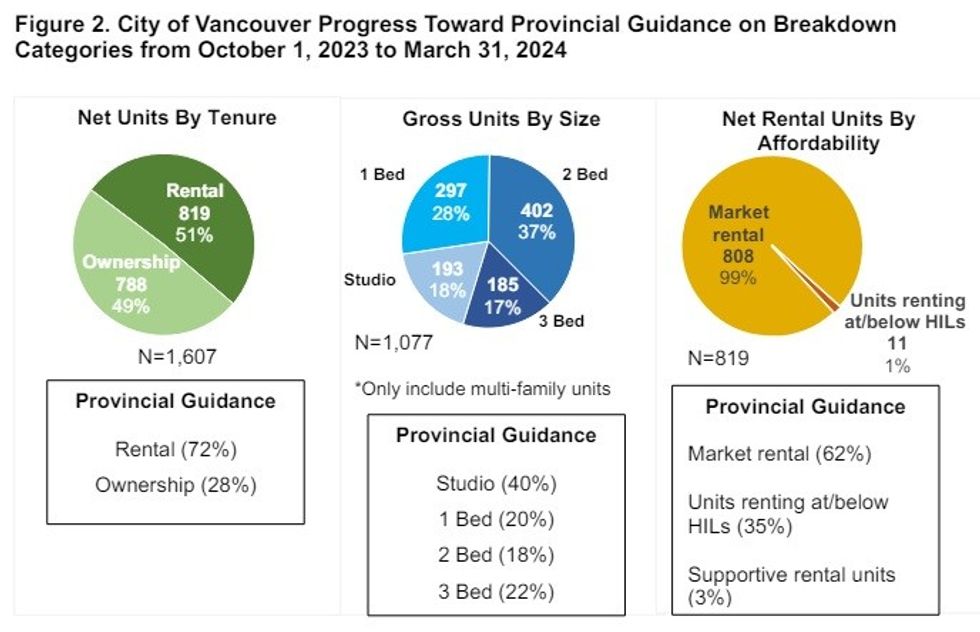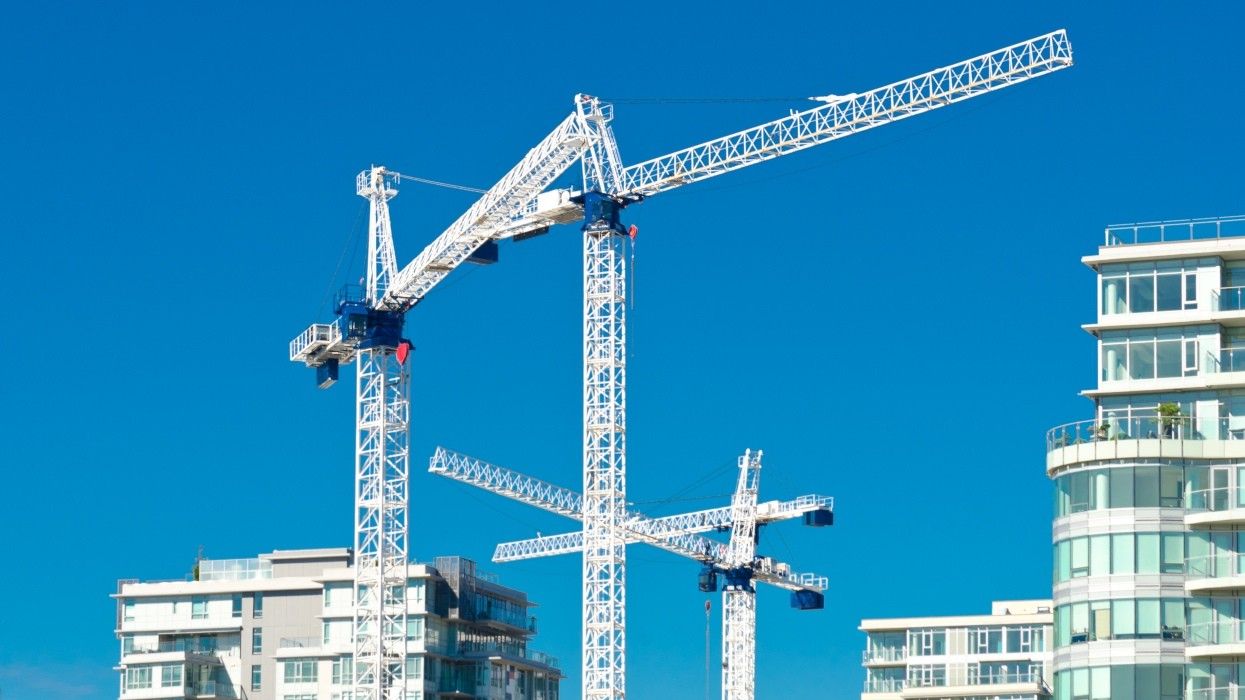If the rate of housing completions continue at its current pace, the City of Vancouver is set to miss its provincially-set housing supply target for the year, according to a report that's set to be received by Council in a special meeting on Tuesday.
Vancouver was one of the first 10 local governments to receive housing supply targets under the Housing Supply Act introduced by the Province last year, and was given a target of 5,202 new units completed for the first year (October 1, 2023 to September 30, 2024).
According to the Council report, Vancouver added 1,607 new units between October 1 and March 31, which means the City is only at 30.1% of the target halfway through the year. Completions are being measured by occupancy permits issued.
As per the Province's regulations, local governments are expected to prepare a progress report after every year, except in the first year, when a progress report is required at both the midway point and conclusion of the year. The Province's housing supply orders include both annual targets and a cumulative target for the five-years, with Vancouver's cumulative target set at 28,900.
- Year 1: 5,202
- Year 2: 10,597
- Year 3: 16,281
- Year 4: 22,349
- Year 5: 28,900
On a five-year basis, the 1,607 units means Vancouver has completed 5.6% of its cumulative target through 10% of the five year timeline.
The shortfall is not necessarily a reflection of the current administration, however.
"It is important to note that projects reaching completions in 2024 are measuring applications that began construction 2-3 years ago," staff said in the report to Council. "These projects have already worked their way through the municipal permitting process and were approved over the last 5 years or longer."
City staff also note that it is common for completions to be lower in the first part of the year, likely alluding to the winter months when construction typically halts.
Of the 1,607 units completed during this period, 819 (51%) were rental units and 808 (99%) of those rental units were market rental units, rather than affordable rental units, which are also below the levels the Province wants to see.

Vancouver's Housing Supply Pipeline
While the numbers so far are not ideal, there is still plenty of time for Vancouver to pick things up and there are signs indicating that could indeed happen.
"Despite lower than anticipated completions, there is an unprecedented volume of projects instream, with enough capacity in our current development pipeline to meet the Province's overall completions target over the 5-year time frame," said staff.
According to City statistics, there are currently 31,300 new units currently in the pipeline, with 8,000 units at the building permit stage, 14,600 units that have been approved (rezoning or development permit), 4,200 units under review, and 4,500 low-density units in the application stage.
City staff said that they recognize, however, that construction and completion is largely dependent on factors the City cannot control, noting factors such as cost escalation, financing, and the capacity of the construction sector.
Going forward, City staff say they will be updating its Housing Vancouver Strategy, which include City-set targets, which are more focused on different types of housing, that were approved under the previous Council. Staff say they will be updating the Housing Vancouver targets to incorporate the provincial targets and are also developing a new 3-Year Housing Action Plan.
"This work will reconsider our targets in light of the current climate and comprehensively assess Vancouver’s supply response in meeting the needs of current and future households," staff said. "It will consider whether Vancouver can meet or exceed the overall targets proposed by the Province as well as the distribution of targets by affordability and tenure."
Both the Housing Vancouver targets refresh and 3-Year Housing Action Plan are expected to be presented to Council in June.
- BC Gov Announces Next 20 Cities To Receive Housing Targets ›
- Vancouver Approves Motion To Explore Building Co-Op Housing On City-Owned Land ›
- Vancouver Receives $115M From Federal Housing Accelerator Fund ›
- How BC Cities Are Faring Against Housing Supply Targets (TRACKER) ›
- BC Gov To Order Changes In West Van And Oak Bay After Missed Housing Targets ›





















